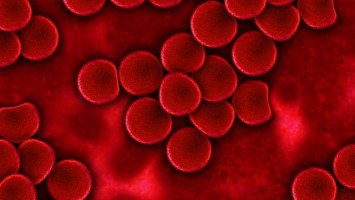
The Food and Drug Administration granted regular approval to axicabtagene ciloleucel for the treatment of adult patients with relapsed or refractory large B-cell lymphoma after two or more lines of systemic therapy, including diffuse large B-cell lymphoma (DLBCL) not otherwise specified, primary mediastinal large B-cell lymphoma, high-grade B-cell lymphoma, and DLBCL arising from follicular lymphoma.
Axicabtagene ciloleucel is a chimeric antigen receptor (CAR) T cell immunotherapy.
It consists of autologous T cells that are genetically modified to produce a CAR protein, allowing the T cells to identify and eliminate CD19-expressing normal and malignant cells.
Approval was based on a single-arm multicenter trial of 108 adult patients with aggressive B-cell non-Hodgkin lymphoma.
Eligible patients had refractory disease to the most recent therapy or relapse within one year after autologous haematopoietic stem cell transplantation.
Patients received a single infusion of axicabtagene ciloleucel following completion of lymphodepleting chemotherapy.
Of the 101 patients evaluated for efficacy, the objective response rate (ORR) as assessed by independent central review was 72%, with a complete remission (CR) rate of 51% (95% CI: 41, 62).
The duration of response (DOR) was longer in patients with a best overall response of CR, as compared to a best overall response of partial remission (PR).
Among patients achieving CR, the estimated median DOR was not reached (95% CI: 8.1 months, not estimable [NE]) after a median follow-up of 7.9-months.
The estimated median DOR among patients in PR was 2.1 months (95% CI: 1.3, 5.3).
The most common grade 3 or higher adverse reactions (incidence of 10% or greater) include febrile neutropenia, fever, cytokine release syndrome (CRS), encephalopathy, infections, hypotension, and hypoxia.
Serious adverse reactions occurred in 52% of patients and included CRS, neurologic toxicity, prolonged cytopenias (including neutropenia, thrombocytopenia, and anaemia), and serious infections.
Fatal cases of CRS and neurologic toxicity occurred. FDA approved axicabtagene ciloleucel with a Risk Evaluation and Mitigation Strategy.
The recommended dose of axicabtagene ciloleucel is a single intravenous infusion with a target of 2 x 106 CAR-positive viable T cells per kg body weight (maximum 2 x 108), preceded by fludarabine and cyclophosphamide lymphodepleting chemotherapy.
Axicabtagene ciloleucel is not indicated for the treatment of patients with primary central nervous system lymphoma.
Source: FDA
The World Cancer Declaration recognises that to make major reductions in premature deaths, innovative education and training opportunities for healthcare workers in all disciplines of cancer control need to improve significantly.
ecancer plays a critical part in improving access to education for medical professionals.
Every day we help doctors, nurses, patients and their advocates to further their knowledge and improve the quality of care. Please make a donation to support our ongoing work.
Thank you for your support.